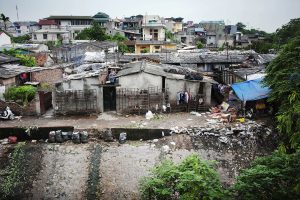5 June 2018: The UN Office for Project Services (UNOPS) and the UN Environment Programme (UNEP, or UN Environment), with the Government of Tanzania, have completed large-scale coastal defense structures along the coastline of Tanzania, contributing to the country’s coastal area resilience to climate change.
Speaking in Dar es Salaam on World Environment Day, 5 June 2018, Vice-President of Tanzania Samia Suluhu applauded the completion of 2,400 meters of seawalls, noting that the construction of a wall in the Kisiwa Panza in northern Tanzania prevented the area from sinking, while a wall in Pangani countered the effects of erosion.
UN Environment Executive Director Erik Solheim said that as sea levels rise, adaptation projects like seawalls are critical.
Around 800,000 Tanzanians could be impacted annually by flooding caused by the rising sea levels between 2070 and 2100, without significant investments in climate adaptation. Seawalls have already been constructed in seven sites along Tanzania’s coast, with financial support from the Adaptation Fund (AF), the Least Developed Countries Fund (LDCF) and the Government of Tanzania.
The project to increase coastal area resilience is part of a broader UN Environment initiative to build climate resilience by improving natural ecosystems. The defense structures enable communities in low-lying areas and informal settlements to continue income-generating activities, such as fishing and agriculture. Mangrove and coral habitats restoration accompanied seawalls construction as they can act as natural barriers against wave and tidal surges. Solar street lights and benches were also installed along the seawalls.
The seawall completion announcement took place at the end of a week-long event to commemorate World Environment Day and raise awareness on environmental issues. The theme of the event was ‘Charcoal is Costly: Use Alternative Energy.’ The project will contribute to SDGs 12 (responsible consumption and production), 13 (climate action) and SDG 14 (life below water), among others. [UN Environment Press Release]

